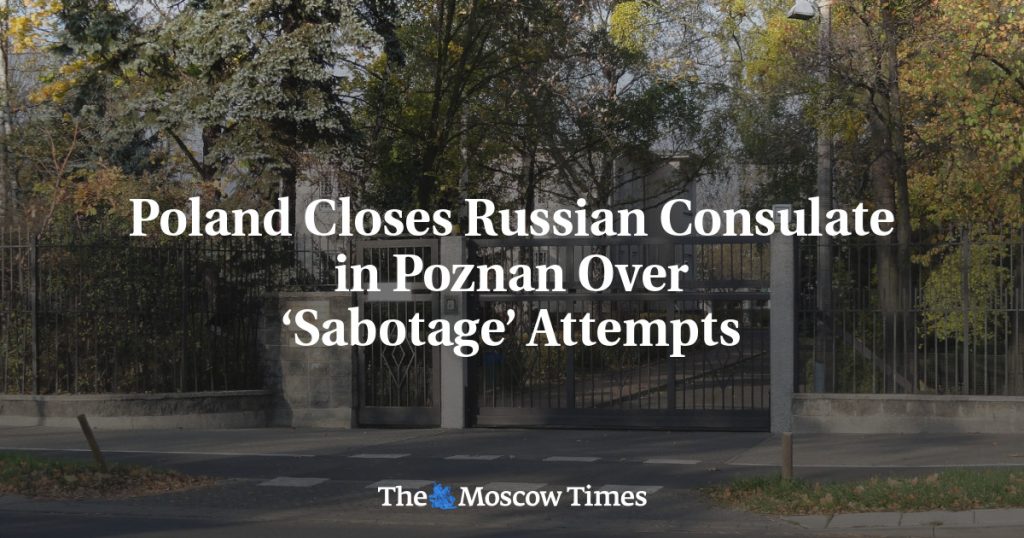Poland has ordered the closure of the Russian consulate in Poznan, citing alleged sabotage attempts by Russia within the country and other allied nations. Foreign Minister Radoslaw Sikorski stated that he has evidence of Russian involvement in sabotage efforts in Poland and other countries, leading to his decision to withdraw permission for the consulate to operate in Poznan. Russian staff at the consular mission will be deemed undesirable as a result of this action.
The decision to close the Russian consulate in Poznan comes in the wake of a court case in Wroclaw where a Ukrainian man confessed to working with Russian intelligence to carry out arson attacks at strategic locations. This incident is seen as further evidence of Russian sabotage over Poland’s support for Ukraine. In response to Poland’s actions, Russia’s Foreign Ministry spokeswoman Maria Zakharova has promised a “painful response” to what she termed as Warsaw’s unfriendly step.
Poland, along with five other EU member countries in the Baltics, have accused Russia of engaging in hybrid attacks that include tactics such as intimidation, manipulation of migrants, sabotage, disinformation, foreign information manipulation, and interference. These accusations have led to growing tensions between Russia and Poland as well as other Western nations. The decision to close the Russian consulate in Poznan is seen as a direct response to these alleged actions by Moscow.
The closure of the Russian consulate in Poznan marks a significant escalation in the ongoing tensions between Poland and Russia. This move is part of a broader pattern of deteriorating relations between the two countries, exacerbated by Russia’s actions in Ukraine and alleged sabotage attempts in Poland. The decision to label Russian staff at the consulate as undesirable further underscores the seriousness of the situation and the lack of trust between the two nations.
The situation between Poland and Russia is likely to continue to escalate in the coming days and weeks as both sides respond to the closure of the Russian consulate in Poznan. The promise of a “painful response” from Russia suggests that tensions are likely to rise further before any potential resolution is reached. The involvement of other EU member countries in the Baltics in accusing Russia of hybrid attacks only adds to the complexity of the situation and the potential for further conflict.
Overall, the closure of the Russian consulate in Poznan reflects the deepening rift between Poland and Russia over allegations of sabotage and interference in each other’s affairs. The decision by Poland to take such a drastic step underscores the seriousness of the accusations against Russia and the need to address these issues. The coming days and weeks will likely see increased diplomatic tensions and a further deterioration in relations between the two countries unless a resolution can be reached through dialogue and negotiation.














